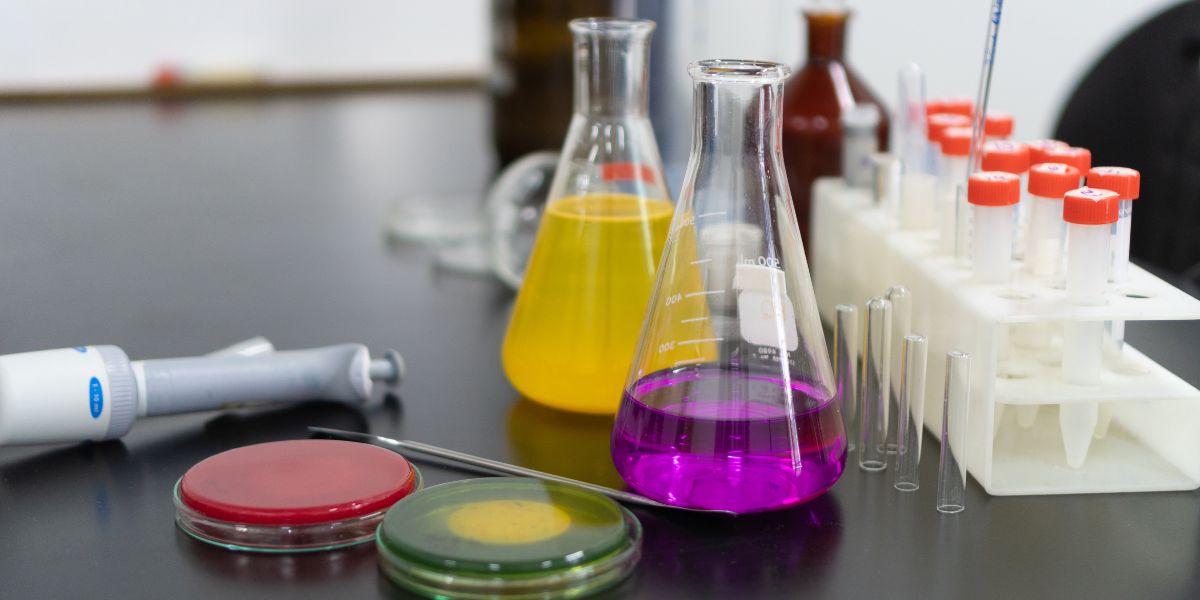
When outfitting a school lab, the durability of equipment is paramount. Imagine having tools that can withstand the rigors of frequent use without compromising quality. What if you could rely on certain materials to endure harsh chemicals, high temperatures, and constant handling? The choice of materials for school lab equipment can significantly impact its longevity and performance. So, which materials stand out as the most durable options for your lab setting? Let's explore the characteristics that make them ideal choices for your scientific endeavors.
Stainless Steel
When selecting materials for school lab equipment, consider stainless steel for its exceptional durability and corrosion resistance. Stainless steel is a popular choice for school labs due to its ability to withstand harsh chemicals and high temperatures without corroding or degrading. Its robust nature ensures longevity, making it a cost-effective option in the long run.
Stainless steel equipment is easy to clean and maintain, saving you time and effort on upkeep. Its smooth surface prevents bacteria buildup, promoting a hygienic environment for experiments. Additionally, stainless steel is sturdy and impact-resistant, reducing the risk of breakage or damage during everyday use in a school setting.
Furthermore, stainless steel is versatile and can be used for various lab equipment such as beakers, trays, and storage containers. Its sleek and professional appearance adds a modern touch to your lab while ensuring functionality and safety for students and teachers alike. Consider incorporating stainless steel equipment into your school lab for reliable performance and durability.
Borosilicate Glass
Consider the exceptional durability and versatility of borosilicate glass when selecting materials for school lab equipment. Borosilicate glass is a popular choice in laboratories due to its ability to withstand high temperatures and resist chemical corrosion. This type of glass is composed of boron trioxide and silica, making it more resistant to thermal shock than regular glass.
In school labs, borosilicate glass is commonly used for beakers, test tubes, and other glassware that comes in contact with heat or harsh chemicals. Its durability reduces the risk of breakage and contamination during experiments, ensuring a safer environment for students and educators alike.
Additionally, borosilicate glass is transparent, allowing for easy observation and measurement of reactions and samples. Its smooth surface is easy to clean and sterilize, maintaining a hygienic workspace essential for scientific research.
Polypropylene
Polypropylene stands out as a resilient and versatile material frequently chosen for school lab equipment due to its durability and chemical resistance. This thermoplastic polymer is known for its excellent resistance to a wide range of chemicals, including acids, bases, and solvents commonly used in lab settings. Its durability makes it ideal for various applications, from beakers and graduated cylinders to storage containers and pipette tips.
One of the key advantages of polypropylene is its lightweight nature, which makes handling and transporting lab equipment easier for students and educators alike. Additionally, polypropylene is autoclavable, allowing for easy sterilization and reuse, which is both cost-effective and environmentally friendly.
Due to its resistance to breakage and corrosion, polypropylene lab equipment can withstand rigorous everyday use in school labs without compromising its performance. Whether conducting experiments, storing chemicals, or handling biological samples, polypropylene offers a reliable and long-lasting solution for school lab equipment needs.
Aluminum
Aluminum stands out as a versatile and robust material commonly utilized in school lab equipment for its durability and conductivity. Its lightweight nature makes it easy to handle and move around, which is essential in a school lab setting where equipment may need to be rearranged frequently. Additionally, aluminum is corrosion-resistant, ensuring that the lab equipment will have a longer lifespan and maintain its structural integrity even when exposed to various chemicals during experiments.
The conductivity of aluminum is another key factor in its widespread use in school labs. It allows for efficient heat transfer, making it ideal for items like heating blocks or hot plates. This property enables quick and uniform heating, crucial for conducting experiments with precision and accuracy. Moreover, aluminum's conductivity extends to electricity, making it suitable for constructing electrical components in lab equipment.




